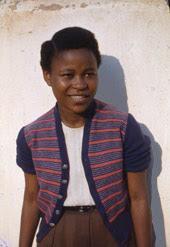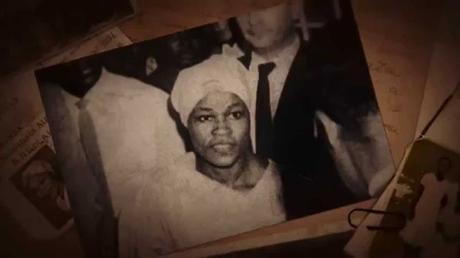
In a 30 May letter Rodriguez, a twenty-year-old Angolan student living in Brazil, requested King’s advice and support for the independence movement in her native country but admonished: “Please just do what You really can with no harm for You…. If some people have to pay with their lives…. let it be ourselves.” In his reply, King suggests that the Angolan movement needs a “person or some few persons to symbolize the struggle: “As soon as your symbol is set up it is not difficult to get people to follow, and the more the oppressor seeks to stop and defeat the symbol, the more it solidifies the movement.”I found out more on Rodríguez de Almeida via her entry in Wikipedia, which discusses her life after leaving Sao Paulo:
Fearing she would be extradited from Brazil because of the Portuguese Imperial relationship between its colonies and her support of the growing Angolan Independence movement, Rodríguez de Almeida moved to the United States the following year and studied at Drew University.
Because she wanted to be an active participant in Angola's independence, Rodríguez did not finish school and decided to leave the U.S. In February 1961, she was recruited to participate in the [Popular Movement for the Liberation of Angola] (MPLA) attack on "Fortalesa", later gaining the honorary title of "Mother of the Revolution"Rodríguez traveled to Guinea-Bissau and Congo Kinshasa, where she co-founded the Organização da Mulher de Angola (Organization of Angolan Women; OMA), the women's division of the MPLA. She received guerrilla training in Kabinda, and joined the Esquadrão Kamy. She returned to Angola in 1962. As a revolutionary movement leader and activist, she campaigned for human rights in Angola, and was associated with the Corpo Voluntário Angolano de Assistência aos Refugiados (CVAAR).Deolinda Rodríguez de Almeida was also a writer and a poet, and her writings can be found in two books - her diary, Diário de um exílio sem regress published in 2003; and her letters and correspondence - Cartas de Langidila e outs documents, published in 2004. They are both published in Portuguese. Although the entry in Wikipedia notes that her writings from 1963
... show an increasing move towards Marxism–Leninism and a painful awareness that her womanhood made her invisible even though she was part of the leadership. She expressed her frustration at the discrimination she faced for her lack of domesticity saying that she was treated as if being single was "shameful or of the devil".I also found some of Deolinda’s poetry on the website Dear Deolinda, set up by Marcia Gleckler who shares letters Deolinda wrote to her as well as their time together. The on-line memoir was also published as a book in 2011 (by the same name). Here is one of the poems, Luanda, written in 1956: No longer the Luanda we once knew the shade of the Mulemba tree the Caconeiras and Piteiras bringing us joy. Instead, in their place hi-rise buildings occupy the sacred land where familiar lovely gardens grew. I am distressed because Luanda is no longer the beautiful African city of my heart. Do people today find happiness here? Unhappy people greatly need Christ and school. A sad truth. How long can we wait?
- - Poem via Dear Deolinda
As written in Immortal Heroes of the World,
... in 1967, a large group of MPLA members – under the leadership of Deolinda Rodríguez de Almeida – was on its way to Angola from Congo to deliver food and medicines to the fighters of first military-political-district. On March 2, this group was attached by Roberto Marauders.Rodríguez de Almeida and four other OMA members (Engracia dos Santos, Irene Cohen, Lucrecia Paim, and Teresa Afonso) were captured by the União dos Povos de Angola (UPA) guerrilla group (later, National Liberation Front of Angola) on 2 March 1968. They were tortured. Rodríguez de Almeida was taken to the FNLA camp, Kinkuzu, in the Democratic Republic of the Congo, she was executed in prison. March 2 is celebrated every year in independent Angola as Angola Women’s Day. A documentary (in Portuguese) of Rodríguez de Almeida's life was released in 2014. Langidila—diário de um exílio semregresso (Langidila—Diary of an exile without return) took four years to complete, was filmed in Angola, Brazil and Mozambique, and interviews associates and incorporates text from Rodrígues's diaries.


